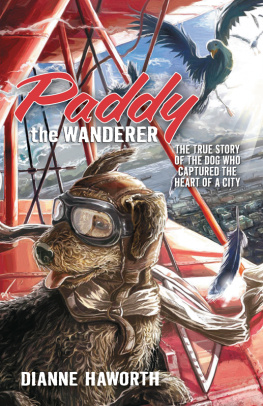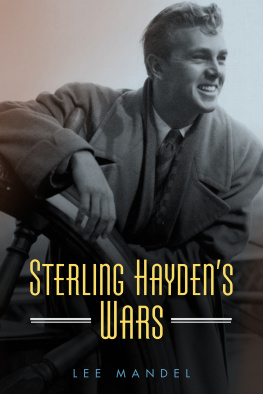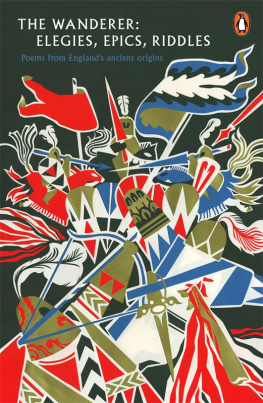Other Books of Interest
There Be No Dragons
Reese Palley
...a delightful blend of information and stories, with emphasis on the human aspect of sailing. Witty, irreverent, and inspirational with as much why to as how to. Cruising World
Advice to the Sealom
Herb Payson
Payson covers a broad range of cruising topics in an informative and often entertaining manner. Whether planning to extend your cruises or live aboard, this is good reading. Cruising World
Castaway in Paradise
James C. Simmons
Explores the reality in the myth through the exciting stories of castaways who, because of shipwrecks, perfidious sea captains, or their own choice, found themselves true-life Robinson Crusoes.
Tamata and the Alliance
Bernard Moitessier
Translated by William Rodarmor
Moitessier became famous for his daring sailing exploits, often done solo. This fascinating memoir spans the time from Moitessiers magic childhood in Indochina to the months before his death in June 1994.
By Way of the Wind
Jim Moore
The adventure begins when Jim Moore announces to his bride of two months that they will build a boat and sail to the South Pacific. The best sailboat cruising book to come out in a long time. Washington Post
Titanic Survivor
Violet Jessop
Edited by John Maxtone-Graham
...compelling...Jessop has added a fresh, indispensable chapter to the legend of the Titanic that buffs and historians will find invaluable. Publishers Weekly
Sheridan House
Americas Favorite Sailing Books
WANDERER

Books by Sterling Hayden
W ANDERER
T HE V OYAGE

An imprint of Globe Pequot
Distributed by NATIONAL BOOK NETWORK
Copyright 1963, 1977 by Sterling Hayden
First published 1963 by Alfred A. Knopf, Inc.
Published 1977 with a new introduction by W. W. Norton Company, Inc.
New paperback edition published 2018 by The Rowman & Littlefield
Publishing Group, Inc.
Cover photos courtesy of Mrs. Catherine Hayden
All rights reserved. No part of this book may be reproduced in any form or by any electronic or mechanical means, including information storage and retrieval systems, without written permission from the publisher, except by a reviewer who may quote passages in a review.
British Library Cataloguing in Publication Information available
An earlier edition of this book was previously cataloged by the Library of Congress Cataloging-in-Publication as follows:
Hayden, Sterling, 19161986
Wanderer / Sterling Hayden
p.cm.
Originally published: New York: Knopf, 1963.
ISBN 1-57409-048-8 (alk.paper)
Hayden, Sterling, 19161986 2. Motion picture actors and actressesUnited StatesBiography I. Title.
PN2267.H34A3 1998
791.43028092dc21
[B] | 97-52177
CIP |
ISBN 978-1-4930-3527-4 (paperback)
ISBN 978-1-57409-335-3 (e-book)
 The paper used in this publication meets the minimum requirements of American National Standard for Information SciencesPermanence of Paper for Printed Library Materials, ANSI/NISO Z39.48-1992.
The paper used in this publication meets the minimum requirements of American National Standard for Information SciencesPermanence of Paper for Printed Library Materials, ANSI/NISO Z39.48-1992.
Printed in the United States of America
To Catherine Devine Hayden
Who had the heart
To join with me
And plunge
Into the abyss
Where books like this are written
And to
Warwick M. Tompkins and Rockwell Kent
SAILORMENARTISTSRADICALS
Who chose Cape Horn
This work is dedicated
By one who chose Tahiti
Introduction to the 1977 Edition
That so few dare be eccentric marks the chief danger of our time.
John Stuart Mill
Is there anybody there? said the Traveler, Knocking on the moonlit door.
Walter de la Mare
He wanders east, he wanders west, Where will he ever come to rest?
Unknown
Vale! Wanderer. With those two words I closed this book, back in 1962, living for a winter on the island of Nantucket. Even as I wrote them I wondered just what I had in mind. Was I saying farewell to my ship or to that part of myself that had long been wandering? And if, as I surmised, it was the latter, then what exactly did I mean?
And while Im not altogether sure that I know now, I do have one or two ideas. The first is that wandering is an art in itself. The second is that wandering and writing dont mix. Writing demands (I speak of sustained writing) commitment, and if there is one thing that your wanderer is allergic to it is that very quality of commitment, for once one is committed he runs the risk of failure, both in his own eyes and in the eyes of those multitudes who, early in life, accept the fact that they must become committed to something if they are to survivein what has long seemed to me a singularly cannibalistic society.
So it is no wonder that the mass of people regard the wanderer as a cross between a romantic vagabond and an irresponsible semi-neer-do-well who cantor wontfit in. Which is not to say that those who are fated to stay at home and toe the line do not look at the wanderer with envy and, yes, even awe, for he is doing what they would like to be doing, and something tells them they will never do it unless they either strike it rich or retireand once retirement rolls around, chances are it will be too late. They know that too.
This would seem to mean that the whole thing is largely a matter of luck, with which I would be the first to agree, having been blessed with good fortune through most of my working life. But I would be remiss if I didnt add that if you want to wander, youre going to have to work at it and give up the one thing that most non-wanderers prize so highlythe illusion of security. I say illusion because the most secure people Ive encountered are, when you come right down to it, the least secure once they have been removed from job and home and bank account. While those unfortunate enough to be locked into some despised and unrewarding job are even worse off. And if I have been favored with good luck all down the years, I can also quickly single out scores of men and women spread around this beleaguered old world who, without luck, have managed to live lives of freedom and adventure (that curious word) beyond the wildest dreams of the stay-at-homes who, when fresh out of school, opted for that great destroyer of mens souls, security.
So I suppose it was with thoughts like these coiling about in my mind that I put my beloved old schooner on the block and settled back to tackle the writing of a bookthis book. As it turned out, the time was apparently right, for I found with the months and pages flowing by that the making of a book was much like the making of a long voyage. You had good times when all was well and the wind was fair and the pages rolled out just as, at sea, the long blue miles rolled into the wake. You had hard times when, try as you would, not a usable word was written or a mile made good with a vessel.
And I found it rather strange, once the book was published, that folks on occasion would say, But why did you write this book? With some even asking, Was it to find yourself? As though, before the writing, I had been lost, which of course I wasand remained so after the book was accomplished, and am now, fourteen years later, and confidently expect to be for the remainder of my time.
Lost, indeed! Dont talk to me about finding yourself. Only as you are lost is there any hope for you. Which is what, again, wandering is all about. So it is quickly seen that just as this book is about wandering, it is also about hewing to the line and sweating it out and lying awake through long nights dreaming of lost freedoms. All too often Ive declared a moratorium on the Travelers life (and the Traveler is at the opposite pole from the tourist), for it was at just such times as these that I knew the harrowing feeling of being lost. Hell, I never felt lost at sea, even when I didnt know precisely where on earth the vessel was. I was making a hundred and fifty dollars a month as master of a sailing ship when I tossed it over and landed in Hollywood making two-fifty per week with a contract that led to five or six thousand a week at some distant date. Then it was I learned what lostness was.
Next page









 The paper used in this publication meets the minimum requirements of American National Standard for Information SciencesPermanence of Paper for Printed Library Materials, ANSI/NISO Z39.48-1992.
The paper used in this publication meets the minimum requirements of American National Standard for Information SciencesPermanence of Paper for Printed Library Materials, ANSI/NISO Z39.48-1992.